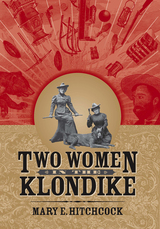

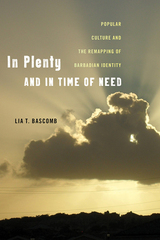
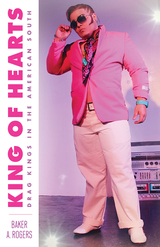
King of Hearts shows how drag king performers are thriving in an unlikely location: Southern Bible Belt states like Tennessee, Georgia, and South Carolina. Based on observations and interviews with sixty Southern drag kings, this study reveals how they are challenging the region’s gender norms while creating a unique community with its own distinctive Southern flair. Reflecting the region’s racial diversity, it profiles not only white drag kings, but also those who are African American, multiracial, and Hispanic.
Queer scholar Baker A. Rogers—who has also performed as drag king Macon Love—takes you on an insider’s tour of Southern drag king culture, exploring its history, the communal bonds that unite it, and the controversies that have divided it. King of Hearts offers a groundbreaking look at a subculture that presents a subversion of gender norms while also providing a vital lifeline for non-gender-conforming Southerners.
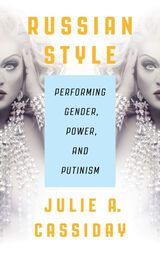
However, while the multiple modes of gender performativity generated in Russian popular culture between 2000 and 2010 supported Putin’s neoconservative agenda, they also helped citizens resist and protest the state’s mandate of heteronormativity. Examining everything from memes to the Eurovision Song Contest and self-help literature, Cassiday untangles the discourse of gender to argue that drag, or travesti, became the performative trope par excellence in Putin’s Russia. Provocatively, Cassiday further argues that the exaggerated expressions of gender demanded by Putin’s regime are best understood as a form of cisgender drag. This smart and lively study provides critical, nuanced analysis of the relationship between popular culture and politics in Russia during Putin’s first two decades in power.
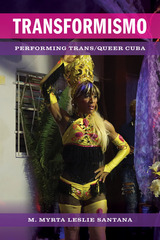
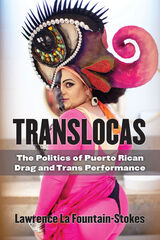
Translocas focuses on drag and transgender performance and activism in Puerto Rico and its diaspora. Arguing for its political potential, Lawrence La Fountain-Stokes explores the social and cultural disruptions caused by Latin American and Latinx “locas” (effeminate men, drag queens, transgender performers, and unruly women) and the various forms of violence to which queer individuals in Puerto Rico and the U.S. are subjected. This interdisciplinary, auto-ethnographic, queer-of-color performance studies book explores the lives and work of contemporary performers and activists including Sylvia Rivera, Nina Flowers, Freddie Mercado, Javier Cardona, Jorge Merced, Erika Lopez, Holly Woodlawn, Monica Beverly Hillz, Lady Catiria, and Barbra Herr; television programs such as RuPaul’s Drag Race; films such as Paris Is Burning, The Salt Mines, and Mala Mala; and literary works by authors such as Mayra Santos-Febres and Manuel Ramos Otero. Lawrence La Fountain-Stokes, a drag performer himself, demonstrates how each destabilizes (and sometimes reifies) dominant notions of gender and sexuality through drag and their embodied transgender expression. These performances provide a means to explore and critique issues of race, class, poverty, national identity, and migratory displacement while they posit a relationship between audiences and performers that has a ritual-like, communal dimension. The book also analyzes the murders of Jorge Steven López Mercado and Kevin Fret in Puerto Rico, and invites readers to challenge, question, and expand their knowledge about queer life, drag, trans performance, and Puerto Rican identity in the Caribbean and the diaspora. The author also pays careful attention to transgender experience, highlighting how trans activists and performers mold their bodies, promote social change, and create community in a context that oscillates between glamour and abjection.
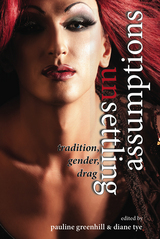
In Unsettling Assumptions, editors Pauline Greenhill and Diane Tye examine how tradition and gender come together to unsettle assumptions about culture and its study.
Contributors explore the intersections of traditional expressive culture and sex/gender systems to question, investigate, or upset concepts like family, ethics, and authenticity. Individual essays consider myriad topics such as Thanksgiving turkeys, rockabilly and bar fights, Chinese tales of female ghosts, selkie stories, a noisy Mennonite New Year’s celebration, the Distaff Gospels, Kentucky tobacco farmers, international adoptions, and more.
In Unsettling Assumptions, folkloric forms express but also counteract negative aspects of culture like misogyny, homophobia, and racism. But expressive culture also emerges as fundamental to our sense of belonging to a family, an occupation, or friendship group and, most notably, to identity performativity and the construction and negotiation of power.

A surprising history of human hair in nineteenth-century America, where length, texture, color, and coiffure became powerful indicators of race, gender, and national belonging.
Hair is always and everywhere freighted with meaning. In nineteenth-century America, however, hair took on decisive new significance as the young nation wrestled with its identity. During the colonial period, hair was usually seen as bodily discharge, even “excrement.” But as Sarah Gold McBride shows, hair gradually came to be understood as an integral part of the body, capable of exposing truths about the individuals from whom it grew—even truths they wanted to hide.
As the United States diversified—intensifying divisions over race, class, citizenship status, and region—Americans sought to understand and classify one another through the revelatory power of hair: its color, texture, length, even the shape of a single strand. While hair styling had long offered clues about one’s social status, the biological properties of hair itself gradually came to be seen as a scientific tell: a reliable indicator of whether a person was a man or a woman; Black, white, Indigenous, or Asian; Christian or heathen; healthy or diseased. Hair was even thought to illuminate aspects of personality—whether one was courageous, ambitious, or perhaps criminally inclined. Yet if hair was a teller of truths, it was also readily turned to purposes of deception in ways that alarmed some and empowered others. Indeed, hair helped many Americans to fashion statements about political belonging, to engage in racial or gender passing, and to reinvent themselves in new cities.
A history inscribed in bangs, curls, and chops, Whiskerology illuminates a period in American history when hair indexed belonging in some ways that may seem strange—but in other ways all too familiar—today.
READERS
Browse our collection.
PUBLISHERS
See BiblioVault's publisher services.
STUDENT SERVICES
Files for college accessibility offices.
UChicago Accessibility Resources
home | accessibility | search | about | contact us
BiblioVault ® 2001 - 2025
The University of Chicago Press


